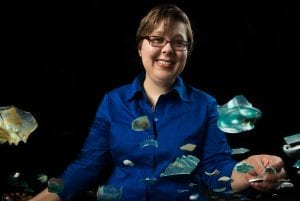For the last 10 months, I’ve been working as a community organizer in Charleston and North Charleston. I work for the Charleston Area Justice Ministry (CAJM), which is a local nonprofit made up of 28 congregations and organizations in the area. We’re an interfaith organization and consists of Catholic parishes, Baptist and Methodist churches, as well as the synagogue and a mosque. We work together and are united in our pursuit for justice.
My job as an organizer is to build relationships with members of the community so that we can make systemic changes. We go through an annual process with three focus areas. First, we conduct house meetings throughout the area to listen to community problems. Members of the community share personal stories about how a community problem is affecting them. Then we vote on the top problem that emerged out of our house meetings. Secondly, we research the problem by meeting with experts to make sure we are finding best practices. Thirdly, we conduct an investment drive to ensure that we are financially stable. Using this process, CAJM has made some lasting changes in the community. Our work has resulted in two hundred extra pre-K slots added per year throughout the Charleston County School District and schools that now use programs to teach students conflict resolution. We have also worked with the four local police departments to implement an objective scoring tool in interactions with juveniles, and we’re currently pushing Charleston and North Charleston to audit the police force for racial bias.
I became interested in community organizing when I did my Capstone project for African American Studies. I researched the similarities and differences between the Civil Rights Movement and the Black Lives Matter Movement. My research led me to focus on the role of the church in the Civil Rights Movement, particularly how the church served as the institution where leaders organized. I noticed that the church wasn’t functioning in the same way in today’s movements. As a part of my analysis, I researched Civil Rights leaders and their methods of organizing. Out of all of the leaders I researched, Ella Baker influenced me the most. Baker and her work with Southern Christian Leadership Conference (SCLC) and her advice to the students who founded the Student Nonviolent Coordinating Committee (SNCC) stuck out to me. Baker argued, “strong people don’t need strong leaders.” What she meant was that everyone has a place in organizations, and successful movements don’t need one leader telling them what steps they should take. It was this paper and research that encouraged me to look more into church-based community organizing.
Brandon Chapman is a community organizer for the Charleston Area Justice Ministry. He graduated from the College of Charleston in 2016 with degrees in African American Studies and Political Science.


